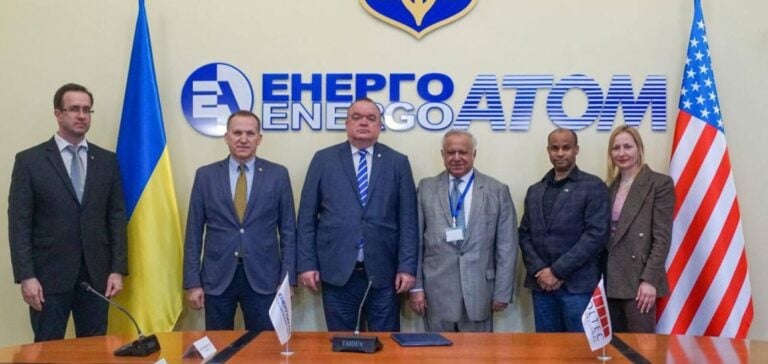The recent online signing of the agreement between Energoatom and Holtec International, observed by Ukraine’s Energy Minister Herman Halushchenko, marks a crucial step forward for nuclear power in Ukraine. The agreement covers the deployment of Holtec’s SMRs and the efficient management of spent nuclear fuel.
The strategic role of partnership in energy security
Petro Kotin, acting president of Energoatom, stresses the importance of the agreement for the Ukrainian energy sector and the national economy, while the Zaporizhia nuclear power plant is under attack from Russian drones. The project envisages the creation of nuclear power generation facilities that will enhance Ukraine’s energy security and stimulate its economic development.
Industrial and economic implications
Shawn Anderson of the U.S. Embassy in Ukraine emphasized the impact of the Master Agreement for the establishment of an advanced manufacturing facility in Ukraine. This facility will be dedicated to the local production of equipment for Holtec’s SMRs, as well as systems for the storage and transportation of spent nuclear fuel, thus promoting Ukraine’s energy security and autonomy.
Technical advances and upcoming projects
Holtec has been working on its SMR unit since 2011, with significant evolutions in the design, notably for the SMR-300. This pressurized water reactor can produce around 300 MW of electrical energy or 1050 MW of thermal power for industrial applications, while remaining safe even in the absence of human intervention.
Future commitments and local construction
In November, Holtec and Energoatom announced plans to build a plant in Ukraine for the production of containers, currently manufactured in the USA, for the storage of spent nuclear fuel. This follows the commissioning in 2022 of Holtec’s centralized spent fuel storage facility in the Chernobyl exclusion zone, a project initiated in 2005.
Thus, the agreement between Energoatom and Holtec International is a significant step towards Ukraine’s empowerment in the nuclear energy sector, offering prospects for enhanced energy security and economic development through technological innovation and local production.






















